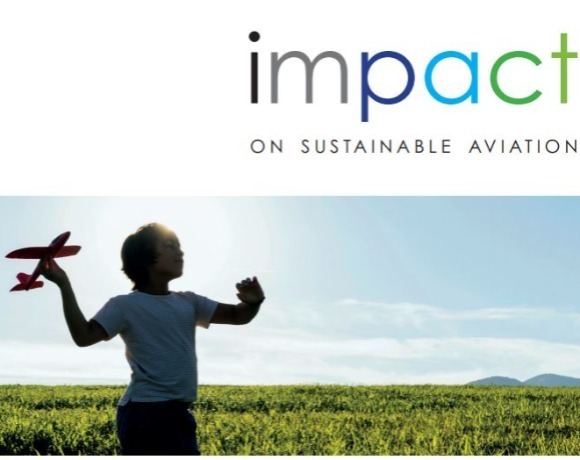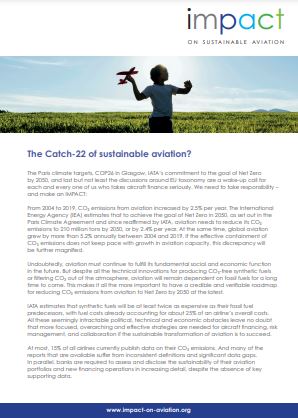Monday 17 January 2022
Aviation banks partner for new sustainable aviation initiative: Impact

A group of about 20 international aviation banks and institutions are in the process of establishing an independent association to promote sustainable aircraft financing.
This initiative, called Impact (Initiative to Measure and Promote Aviation’s Carbon-free Transition e. V.), state it intends to develop credible standards to eliminate box-ticking and greenwashing, promote data transparency and "provide an engine for change for the entire aircraft finance industry worldwide that is independent of vested interests".
Impact is scheduled to be founded as a non-profit association in March 2022. The organisation will operate using the pro bono contributions of its members – and will rely on “very lean” fees from its membership to continue its work. The organisation, which already includes a number of leading aviation banks, is currently forming several working groups and research projects.
Commenting on the need for launching Impact, a memo from the association states: “The Paris climate targets, COP26 in Glasgow, IATA‘s commitment to the goal of Net Zero by 2050, and last but not least the discussions around EU taxonomy are a wake-up call for each and every one of us who takes aircraft finance seriously.”
“We cannot run the risk of aviation being accused of market failure in actively promoting and embracing sustainability. We cannot wait for others to decide and to act.”
To kick-off, Impact states it will focus on five projects:
Transition finance: What does sustainability in aviation mean specifically, and what criteria must financing instruments such as green finance and sustainability-linked finance meet? Which metrics are needed to underpin the different types of financing? How can compliance with these standards be encouraged and supported by certificates?
Metrics: How can the transparency of airlines’ CO₂ emissions be improved? How should metrics such as Scope 1, Scope 2, and especially Scope 3 be defined so that they can be consistently applied, monitored, and reported for the entire aviation value chain? What metrics can be used to measure aircraft and engine efficiency, decarbonization effectiveness and the centrally important decoupling of CO₂ emissions trends from capacity growth? How can more targeted KPIs help to prevent greenwashing?
Policies and reports: Impact will accompany and support political and corporate discussions with an annual report on the status and progress of decarbonisation in aviation. Accordingly, position papers are to be written on current topics that set out, independently of individual interests, which paths are on track and where further action is needed.
Networking: Impact seeks to exchange with all companies in the aviation value chain and with regulators, trade unions, and scientific institutions. It will promote teaching and research on the topic of sustainability in air transport. Impact wants to cooperate with other initiatives in this area and ensure that there is no competition to the detriment of the common cause of climate alignment.
Know-how: How can modern digital knowledge management tools help members of the Impact initiative and others to ensure data, scientific studies and other sources of relevant knowledge on the topic of sustainability in aviation are kept as up-to-date, structured and easily accessible as possible?
Click here on the image below to read more about Impact.
The Ishka View
Airlines, aviation banks and lessors are under growing political and regulatory pressure to help decarbonise aviation. However, there is a noticeable lack of industry consensus around the best means to adopt meaningful environmental practices.
Aviation banks could be a surprisingly powerful lever to stimulate change and behaviour among airlines and lessors. The aviation finance industry is highly capital intensive. If banks agree a set of best practices for new loans that could help drive a wider discussion and behavioural change across the industry. A dedicated association allows banks to pool resources, and research, to help shape new lending guidelines.
However, the pressure is on for Impact to produce credible research and results relatively soon. If the aircraft finance industry cannot work out how to decarbonise, then it is likely that regulators will increasingly decide on its behalf.




Sign in to post a comment. If you don't have an account register here.